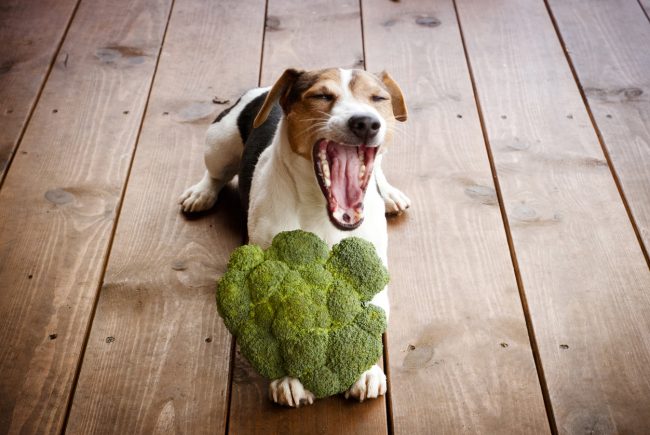A growing number of people in the United States identify as vegans. Some sacrifice meat, fish and dairy for health reasons whereas others adopt a vegan lifestyle because of religious or ethical concerns. It only makes sense that these individuals would also consider a vegan diet for their four-legged family members.
Is a vegan diet safe for dogs? What about cats?
The short answer is yes, and no. In an article on Vetstreet.com, Dr. Ernie Ward maintains that a vegetarian or vegan diet is A-OK for our canine companions. However, the same cannot be said for our feline friends. “Dogs can do just fine on a carefully balanced vegetarian or vegan diet, while cats cannot.”
Although Ward claims he isn’t aware of any studies comparing disease occurrence and longevity in vegetarian versus meat-eating canines, he points out that “one of the world’s oldest dogs, Bramble, who lived to a reported 27 years old in the U.K., was never fed an ounce of meat by her strictly vegan owner.”
Pros and cons of vegan diets for dogs
When it comes to feeding Fido a strictly vegan diet, there are both positives and negatives.
Personal beliefs aside, perhaps the strongest argument in favor of vegetarian or vegan diets for dogs is allergy prevention. In fact, skin allergies in canines are often triggered by the consumption of meat protein, such as chicken, beef and lamb—all common ingredients in many commercial dog foods. Even most dog treats (including the ones designed to help clean teeth and freshen breath!) seem to contain these potential allergens.
Eliminating meat can also help man’s best friend resolve other health conditions, such as kidney stones and liver disease. And one last endorsement for doggie veganism: It effectively helps to reduce your pup’s carbon foot (paw?) print—a huge plus for the planet!
And now for the cons… A vegan meal plan will likely mean extra effort on your part. It can be difficult to ensure that such a diet is healthy and balanced, and deficiencies in vitamins and minerals and amino acid imbalances may occur. Left untreated, these can lead to serious health conditions for your furbaby.
Also keep in mind that your vet may recommend more frequent check-ups and blood tests for your vegan pup than he or she would for their meat-eating pals, and vegan diets are not recommended if you plan to breed your dog.
Before you get started
It’s is a good idea to consult a vet or veterinary nutritionist before beginning your pup’s new meat-free meal plan. He or she can provide recommendations regarding homemade and store-bought vegan dog food. If you decide to purchase the food instead of preparing it yourself, be sure to choose a brand that meets the requirements of the Association of American Feed Control Officials (AAFCO).
Also be aware that just because a food is vegan-approved, doesn’t mean that it’s safe for your furry friend. Avocados, apple cores, garlic, grapes, macadamia nuts and onions can all be toxic to dogs.
And finally, pay attention to your pooch. If you notice a dip in appetite—or if he or she stops eating altogether—you may have to rethink your approach.

